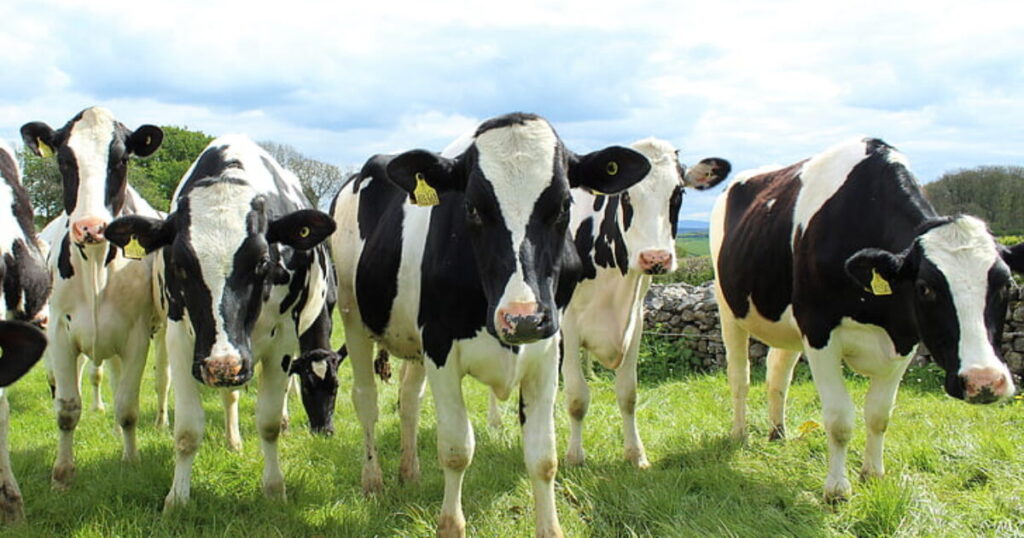In a groundbreaking yet controversial move, Denmark has announced the introduction of the first-ever carbon tax on agriculture, specifically targeting emissions caused by livestock, particularly cows. Farmers will be required to pay around €90 annually for each cow due to methane emissions, which are often attributed to cows’ digestive processes, commonly referred to as “cow farts.” While this might sound humorous at first, the implications of such a tax are serious, raising concerns about increased food prices and economic pressure on farmers. This development reflects a broader trend of government regulations aimed at combating climate change but raises critical questions about the sustainability and practicality of such measures.
The Danish government coalition is pushing forward with this tax initiative as part of its commitment to cut the nation’s total greenhouse gas emissions by 70% by 2030. As it stands, the tax implementation is pending parliamentary approval, with plans for gradual increases; by 2035, the tax is expected to rise to €225 per cow. This ambitious target aligns with the global climate agenda outlined by the United Nations, specifically the UN Agenda 2030, which has faced criticism for its approach to environmental regulation. Critics argue that such aggressive taxation of agriculture could have devastating effects on food production and farmers’ livelihoods.
One of the most pressing concerns is the potential financial burden on farmers, who already face significant challenges in an increasingly regulated agricultural environment. The introduction of a tax based on livestock emissions has sparked fears among Danish farmers, who describe the initiative as a “scary experiment.” The growing concern is that these climate-focused regulatory measures will not only add to farmers’ costs but could also lead to potential food shortages if agricultural profitability declines. Farmers believe that without adequate support and understanding from policymakers, the agricultural sector may become untenable.
Moreover, this carbon tax can be viewed as a reflection of a broader, sociopolitical resistance to traditional farming practices. The notion of “Climate Communism,” as articulated by observers of this phenomenon, suggests that government interventions aimed at mitigating climate change are increasingly encroaching on personal freedoms and agricultural independence. The ongoing divide between policymakers and farmers indicates a deeper issue regarding the priorities of climate initiatives and their real-world application, as evidenced by the hundreds of thousands of farmers who protested across Europe earlier this year against similar climate measures.
These protests signify an urgent call for dialogue between the government and the agricultural community. Farmers argue that their voices are not being heard, and they cite the negative impact of stringent climate policies on their capacity to produce food sustainably. As they grapple with the implications of the new tax, Danish farmers lament feeling scapegoated for environmental issues that are often more complex than simply attributing them to animal emissions. The push for more stringent regulations without considering farmers’ perspectives could lead to detrimental outcomes for both food security and agricultural stability.
In summary, Denmark’s impending carbon tax on livestock is a bold and contentious step towards addressing climate change; however, it raises significant concerns about the implications for farmers, food prices, and the agricultural sector as a whole. The reactions from Danish farmers highlight the need for a balanced approach that considers the realities of food production and the livelihoods of those who ensure food security. If the government does not adequately respond to these concerns, the proposed climate policies could translate into a larger conflict between environmental goals and the practical realities of farming, revealing the complexities and challenges of navigating climate change in an agricultural context.

